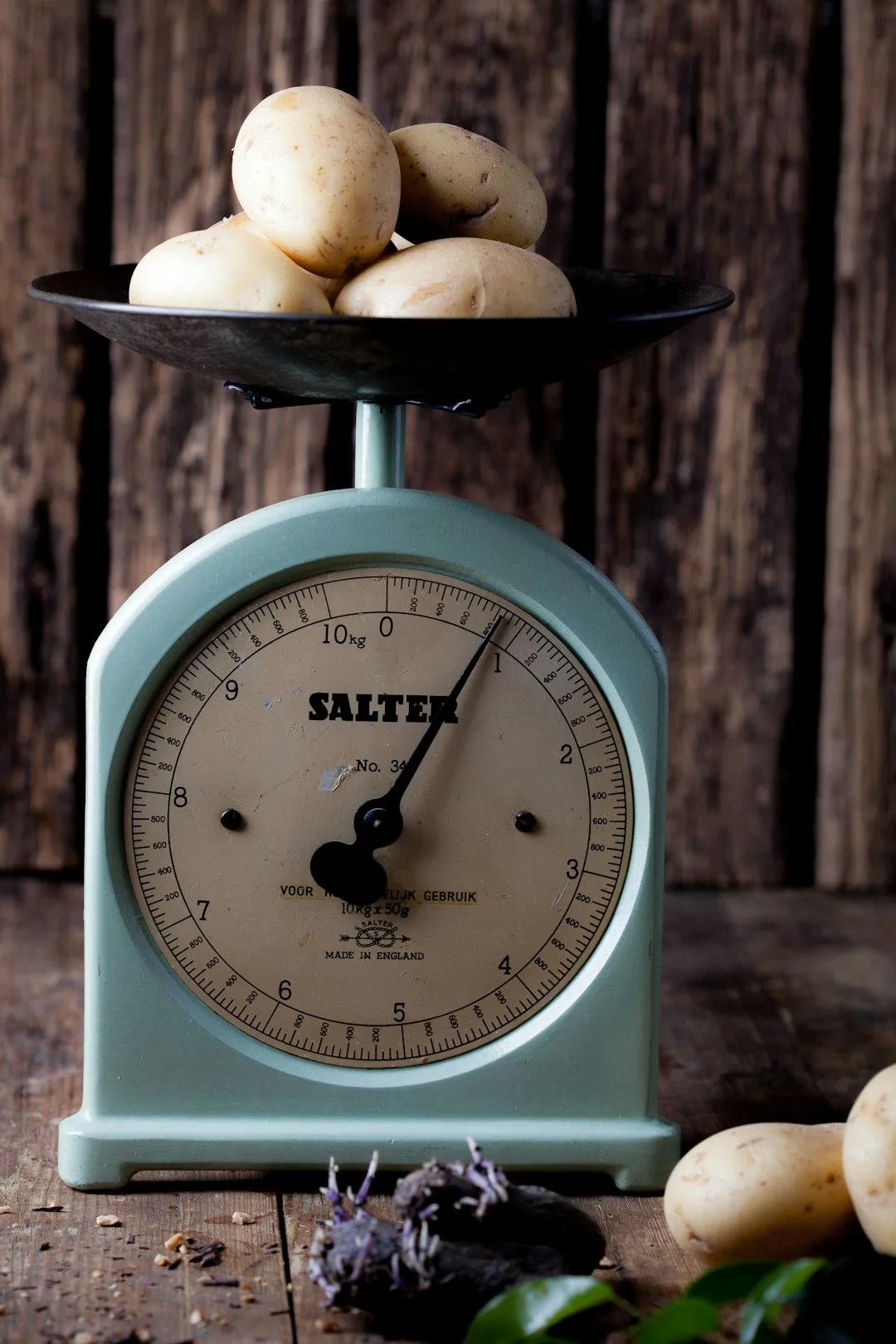Hey...

You’re Not Eating Too Much—You’re Just Burning Too Little (Metabolism & Hormones Explained)
For years, you’ve been told that weight loss is as simple as "calories in versus calories out." If you eat less and exercise more, you’ll lose weight—or so they say.
But if you’re a woman over 40, you’ve probably noticed that the math doesn’t add up anymore. You’re not binge-eating, you’re not lazy, and yet the scale barely budges. In fact, you might even gain weight despite "doing everything right."
Sound familiar?
Here’s the truth: You’re not eating too much. You’re just burning too little. And it has nothing to do with willpower and everything to do with your metabolism and hormones.
Let’s break it down so you can finally understand what’s happening inside your body—and what to do about it.
Your Metabolism Isn’t Broken, It’s Just Slowed Down
Metabolism is more than just how many calories you burn. It’s the entire system that keeps your body running: energy production, digestion, hormone balance, even brain function. And the kicker? Your metabolism isn’t fixed; it adapts.
The biggest factor influencing how much you burn? Your metabolic rate.
Your basal metabolic rate (BMR) is the number of calories your body burns just to keep you alive (breathing, pumping blood, maintaining organs).
This makes up 60-75% of the energy you burn daily.
When metabolism slows, your body burns fewer calories at rest.
And guess what slows metabolism?
Chronic dieting (yes, cutting calories can make things worse)
Hormonal shifts (especially in perimenopause & menopause)
Loss of muscle mass (which naturally declines as we age)
Chronic stress & poor sleep (elevated cortisol slows fat burning)
If you’ve been trying to "eat less and move more," but your metabolism has adapted to burning less, you’re stuck in a frustrating loop. Your body is simply conserving energy.
Hormones: The Hidden Force Behind Weight Gain & Fat Storage
Most women don’t realise that their hormones control their metabolism more than calories do. If your hormones aren’t in balance, it doesn’t matter how "clean" you eat or how much you exercise. Your body will hold onto fat, especially around your midsection.
Here’s how key hormones affect your weight:
1. Cortisol (The Stress Hormone)
Chronic stress = chronically elevated cortisol.
This tells your body to store fat, especially around your belly.
It also slows thyroid function, further reducing metabolism.
2. Insulin (The Fat-Storing Hormone)
Insulin resistance means your body stores more fat instead of burning it.
This makes it harder to access stored fat for energy.
Many women unknowingly struggle with insulin issues, even without diabetes.
3. Oestrogen & Progesterone (The Balance Keepers)
Oestrogen dominance (too much oestrogen relative to progesterone) leads to fat storage, fluid retention, and sugar cravings.
In perimenopause and menopause, oestrogen drops, progesterone plummets, and metabolism tanks.
Low progesterone also increases stress hormones, worsening the cycle.
4. Thyroid Hormones (The Metabolism Regulators)
An underactive thyroid = slow metabolism, fatigue, and stubborn weight.
Dieting, stress, and poor gut health can all reduce thyroid function.
So, What Can You Do?
If the problem isn’t eating too much, the solution isn’t starving yourself.
You need to get your body burning more, not eating less.
1. Eat More (Yes, Really!)
Focus on protein-rich meals to build muscle & boost metabolism.
Increase healthy fats (avocado, nuts, olive oil) to stabilise hormones.
Don’t fear carbs—just choose fibre-rich ones like sweet potatoes & quinoa.
2. Strength Train to Build Muscle
Muscle burns more calories at rest.
Strength training 2-3x per week can reverse metabolic slowdown.
3. Support Your Thyroid & Adrenals
Reduce stress: meditation, deep breathing, or gentle movement like yoga.
Improve sleep: aim for 7-9 hours and avoid blue light before bed.
Check nutrient levels: Selenium, zinc, iodine, and iron support thyroid function.
4. Balance Your Blood Sugar
Eat protein with every meal to avoid insulin spikes.
Limit ultra-processed foods that cause blood sugar crashes.
Add healthy fats to slow sugar absorption.
5. Get Your Hormones Checked
If you’re doing "everything right" and still struggling, it’s time to dig deeper.
The fastest way to know what’s going on in your body? Take my free hormone assessment quiz. It will help you uncover which hormonal imbalances might be sabotaging your metabolism—and give you personalised recommendations on what to do next.
Final Thoughts: You’re Not Broken, You Just Need the Right Strategy
You are not failing. Your body isn’t working against you. It’s adapting to protect you.
But you don’t have to accept sluggish metabolism, low energy, and stubborn weight as your new normal.
With the right support, you can wake up your metabolism, balance your hormones, and finally see results—without starving yourself or spending hours on the treadmill.
And it starts with understanding what your body truly needs.

You’re Not Eating Too Much—You’re Just Burning Too Little (Metabolism & Hormones Explained)
For years, you’ve been told that weight loss is as simple as "calories in versus calories out." If you eat less and exercise more, you’ll lose weight—or so they say.
But if you’re a woman over 40, you’ve probably noticed that the math doesn’t add up anymore. You’re not binge-eating, you’re not lazy, and yet the scale barely budges. In fact, you might even gain weight despite "doing everything right."
Sound familiar?
Here’s the truth: You’re not eating too much. You’re just burning too little. And it has nothing to do with willpower and everything to do with your metabolism and hormones.
Let’s break it down so you can finally understand what’s happening inside your body—and what to do about it.
Your Metabolism Isn’t Broken, It’s Just Slowed Down
Metabolism is more than just how many calories you burn. It’s the entire system that keeps your body running: energy production, digestion, hormone balance, even brain function. And the kicker? Your metabolism isn’t fixed; it adapts.
The biggest factor influencing how much you burn? Your metabolic rate.
Your basal metabolic rate (BMR) is the number of calories your body burns just to keep you alive (breathing, pumping blood, maintaining organs).
This makes up 60-75% of the energy you burn daily.
When metabolism slows, your body burns fewer calories at rest.
And guess what slows metabolism?
Chronic dieting (yes, cutting calories can make things worse)
Hormonal shifts (especially in perimenopause & menopause)
Loss of muscle mass (which naturally declines as we age)
Chronic stress & poor sleep (elevated cortisol slows fat burning)
If you’ve been trying to "eat less and move more," but your metabolism has adapted to burning less, you’re stuck in a frustrating loop. Your body is simply conserving energy.
Hormones: The Hidden Force Behind Weight Gain & Fat Storage
Most women don’t realise that their hormones control their metabolism more than calories do. If your hormones aren’t in balance, it doesn’t matter how "clean" you eat or how much you exercise. Your body will hold onto fat, especially around your midsection.
Here’s how key hormones affect your weight:
1. Cortisol (The Stress Hormone)
Chronic stress = chronically elevated cortisol.
This tells your body to store fat, especially around your belly.
It also slows thyroid function, further reducing metabolism.
2. Insulin (The Fat-Storing Hormone)
Insulin resistance means your body stores more fat instead of burning it.
This makes it harder to access stored fat for energy.
Many women unknowingly struggle with insulin issues, even without diabetes.
3. Oestrogen & Progesterone (The Balance Keepers)
Oestrogen dominance (too much oestrogen relative to progesterone) leads to fat storage, fluid retention, and sugar cravings.
In perimenopause and menopause, oestrogen drops, progesterone plummets, and metabolism tanks.
Low progesterone also increases stress hormones, worsening the cycle.
4. Thyroid Hormones (The Metabolism Regulators)
An underactive thyroid = slow metabolism, fatigue, and stubborn weight.
Dieting, stress, and poor gut health can all reduce thyroid function.
So, What Can You Do?
If the problem isn’t eating too much, the solution isn’t starving yourself.
You need to get your body burning more, not eating less.
1. Eat More (Yes, Really!)
Focus on protein-rich meals to build muscle & boost metabolism.
Increase healthy fats (avocado, nuts, olive oil) to stabilise hormones.
Don’t fear carbs—just choose fibre-rich ones like sweet potatoes & quinoa.
2. Strength Train to Build Muscle
Muscle burns more calories at rest.
Strength training 2-3x per week can reverse metabolic slowdown.
3. Support Your Thyroid & Adrenals
Reduce stress: meditation, deep breathing, or gentle movement like yoga.
Improve sleep: aim for 7-9 hours and avoid blue light before bed.
Check nutrient levels: Selenium, zinc, iodine, and iron support thyroid function.
4. Balance Your Blood Sugar
Eat protein with every meal to avoid insulin spikes.
Limit ultra-processed foods that cause blood sugar crashes.
Add healthy fats to slow sugar absorption.
5. Get Your Hormones Checked
If you’re doing "everything right" and still struggling, it’s time to dig deeper.
The fastest way to know what’s going on in your body? Take my free hormone assessment quiz. It will help you uncover which hormonal imbalances might be sabotaging your metabolism—and give you personalised recommendations on what to do next.
Final Thoughts: You’re Not Broken, You Just Need the Right Strategy
You are not failing. Your body isn’t working against you. It’s adapting to protect you.
But you don’t have to accept sluggish metabolism, low energy, and stubborn weight as your new normal.
With the right support, you can wake up your metabolism, balance your hormones, and finally see results—without starving yourself or spending hours on the treadmill.
And it starts with understanding what your body truly needs.
Nourish Your Body, Lose Weight For Good
Like many women, you may be struggling to shift the weight despite dieting and taking care to consume fewer calories than they burn. This is a common experience for women over 35, and it's rooted in how your hormones and metabolism change over time.
Restricting calories too much actually further damages the metabolism and hormones, and an entirely different approach is required to heal your metabolism and lose weight without experiencing rebound weight gain.
Like many women, you may be struggling to shift the weight despite dieting and taking care to consume fewer calories than they consume. This is a common experience for women over 35, and it's linked to how your hormones and metabolism change over time.
Restricting calories too low actually further damages the metabolism and hormones, and an entirely different approach is required to heal your metabolism and lose weight without experiencing rebound weight gain.
© Copyright 2026. All Rights Reserved by Louise Digby Nutrition Ltd | Privacy Policy
Contact Us: support@louisedigbynutrition.com



